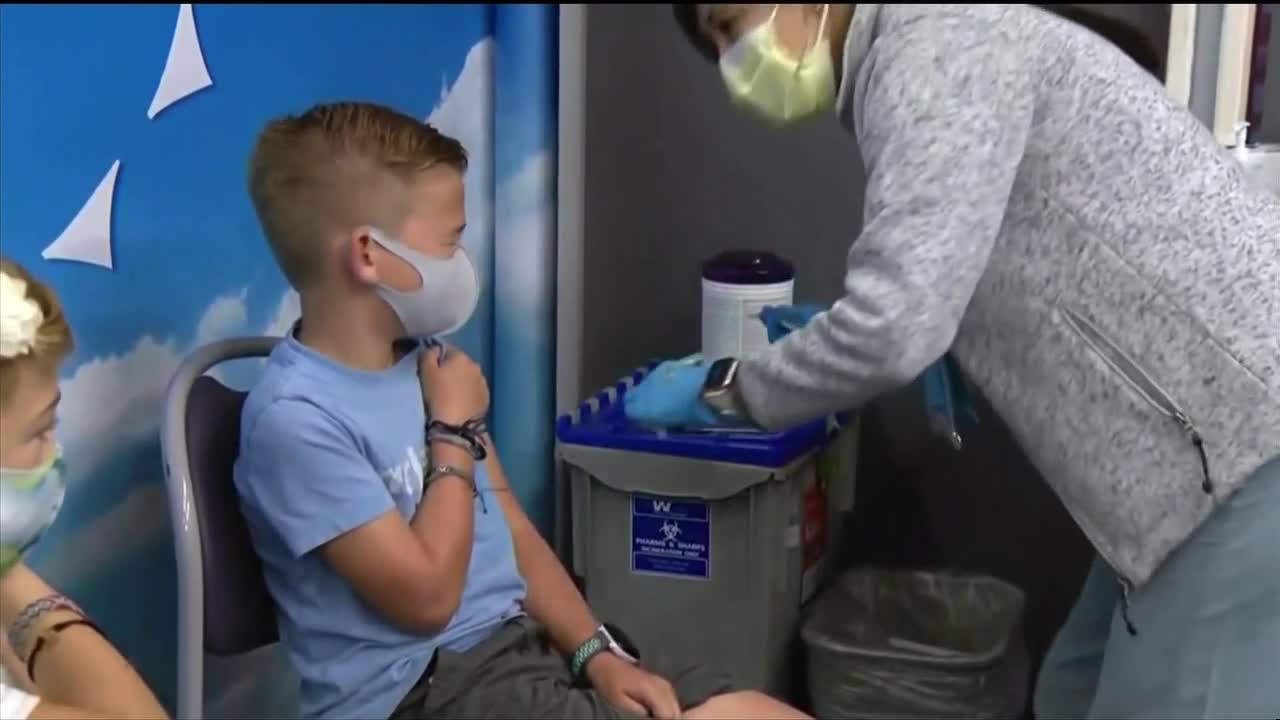COLORADO SPRINGS — On Tuesday, the Director of the Centers for Disease Control and Prevention (CDC) gave final authorization to the recommendation that children between five and 11 years old receive the pediatric Pfizer COVID-19 vaccine.
The decision applies to an estimated 28 million kids in the country.
Those with El Paso County Public Health said the local 5-11 age group has the highest incidence rate when compared to the 0-4, 12-17, and 18+ age groups. The pediatric vaccine will be available in El Paso County beginning Friday, November 5, at a number of locations.
The American Academy of Pediatrics reports children between five and 11 years old will be vaccinated with two 10-microgram doses, given 21 days apart. The dosage is a third of what is contained in an adult or adolescent vaccine. The dosage of a COVID-19 vaccine is determined by a child's age.
El Paso County Public Health said parents should speak with a physician or pediatrician if they have questions or concerns regarding the vaccine.
Dr. Elisabeth Vanse is a pediatrician who also works as the director of medical services for pediatrics at Peak Vista Community Health Centers. She is excited about the decision from the CDC, and has heard a wide spectrum of opinions about the vaccine from parents of her patients. "There's a lot of parents who are very excited, and very thrilled and relieved, and I would definitely fall in that. But, there's a lot of people who have questions and concerns too about, you know, I don't want my kid to be the first one to get the vaccine, what if there's reactions we don't know about," explained Dr. Vanse.
Dr. Vanse said Peak Vista Community Health Centers ordered the pediatric vaccines a little over a week ago, and are waiting on the shipment. As soon as they have the vaccines, they will begin scheduling appointments and administering them. "I tell parents it's the best prevention you can do because it's using your own immune system, it's using your own protection, but it's just giving yourself a head start so that you already know what to do when you're in the fight," said Dr. Vanse.
She said the research behind the pediatric vaccine does not show it having any effects on a child's growth or development. "As a pediatrician and a mom, I wouldn't have any concerns with that. Kids obviously get more vaccines than adults do already. Their body, their immune system, works really well and really robustly, and actually responds to vaccines usually better than adults," said Dr. Vanse, who has two teenage daughters.
Clinical trials studying the vaccine in children between five and 11 years old found it was around 90% effective in preventing symptomatic COVID-19. Over 3,000 kids participated in the trials, and their reactions were mostly considered mild or moderate. "Even though no vaccine is without any risk, the risk is small, and the risk of COVID is still very real, and so the ability to give them that protection I think is the most important thing," said Dr. Vanse.
Dr. Vanse said many children do not have serious complications when they contract COVID-19. However, she pointed to federal data showing more than 8,300 children between five and 11 have been hospitalized because of the virus, and 94 children in that age group died.
She said getting the vaccine helps anyone who interacts with children. "The reason to vaccinate is for those children who are high risk that don't have the ability to be vaccinated yet. And then also, the superspreaders. They're the ones that are in school, they're talking to each other, they're sharing pencils, they're sharing lunches, they're sharing sippy cups, they're sharing toys," said Dr. Vanse.
Dr. Vanse said one of the most commonly asked questions when discussing pediatric vaccines is about myocarditis, an inflammation of the heart. The American Academy of Pediatrics states the "occasional cases of myocarditis that have been reported after an mRNA COVID-19 vaccine have been predominantly in males ages 12-29 years." Dr. Vanse said it is more likely to see adverse long-term cardiac effects as a result of contracting COVID-19, rather than from the vaccine.
RELATED
El Paso County: Where to get COVID-19 vaccines for children ages 5-11
El Paso County: Kids ages five to 11 can get Pfizer COVID-19 starting Friday



